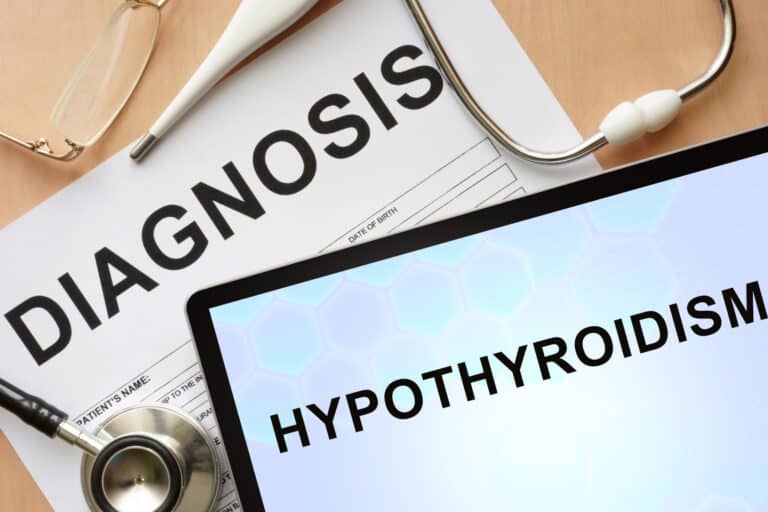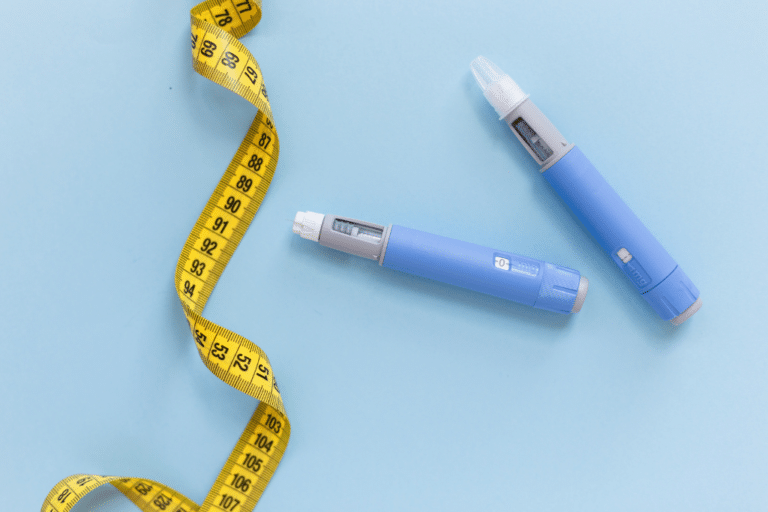Living with a thyroid condition can be a complicated journey. Hypothyroidism, a condition characterized by an underactive thyroid gland, not only affects physical well-being but also has a profound impact on mental health. Underactive thyroid has significant effects on mood, clear thinking, and overall mental well-being.
Understanding Hypothyroidism
As mentioned in a previous post, hypothyroidism occurs when the thyroid gland fails to produce sufficient thyroid hormones, namely thyroxine (T4) and triiodothyronine (T3). These hormones play a vital role in regulating various bodily functions, including metabolism, growth, and development. When thyroid hormone levels are low, it can lead to a range of physical and mental symptoms. There is an epidemic of undiagnosed thyroid disease, mostly in women.
Effects on Mental Health
Hypothyroidism can have a profound impact on mental health, often resulting in changes in mood, cognition, and overall mental well-being. Many women may experience symptoms such as depression, anxiety, irritability, and low motivation. These mood disturbances can significantly affect daily life, relationships, and overall quality of life.
Cognitive function may also be impaired in individuals with hypothyroidism. They may experience difficulties with memory, concentration, and processing speed. These changes can affect work performance, academics, and even simple daily tasks.
Managing Mental Health with Hypothyroidism
Fortunately, there are strategies to support mental health issues in perimenopause and menopause. The first strategy is to get diagnosed! A full thyroid panel is necessary to get a true picture of what is happening because there can be abnormalities in labs that won’t be reflected if a TSH level is all that is checked. If you already have a diagnosis of thyroid disease, it’s important to work closely with a healthcare professional to optimize thyroid hormone levels through appropriate medication and dosage adjustments. Regular monitoring and adjustment of medication can help alleviate some mental health symptoms associated with hypothyroidism. And remember, when it comes to labs, “normal” is not the same as ideal. You want your thyroid hormone levels to be in the upper third of the range and your TSH ideally between 1-2 mIU/mL.
In addition to medication, lifestyle modifications can make a significant difference. Regular physical activity, such as walking, yoga, or swimming, can help boost mood and alleviate symptoms of depression. Prioritizing sleep is also vital, because sleep disturbances are common in women with hypothyroidism and exhaustion does nothing to help mental health!
Stress management strategies, such as meditation, deep breathing exercises, or engaging in relaxing hobbies, can help reduce anxiety and improve overall mental well-being. A healthy, balanced diet, rich in essential nutrients like selenium, zinc, iodine and B vitamins is also important for supporting brain health and optimizing mood.
The Bottom Line
Hypothyroidism and mental health are deeply intertwined. The impact of an underactive thyroid gland goes beyond physical symptoms and can have a significant effect on mood, cognition, and overall mental well-being. By working closely with healthcare professionals, adopting lifestyle modifications, and seeking support, individuals with hypothyroidism can effectively manage their mental health. It’s important to remember that everyone’s experience with hypothyroidism is unique. Finding the right approach may require patience and a bit of trial and error.
Dr. Anna Garrett is a menopause expert and Doctor of Pharmacy. She helps women who are struggling with symptoms of perimenopause and menopause find natural hormone balancing solutions so they can rock their mojo through midlife and beyond. Dr. Anna is the author of Perimenopause: The Savvy Sister’s Guide to Hormone Harmony. Order your copy at www.perimenopausebook.com.
Dr. Anna is available for 1-1 consultation. Find out more at www.drannagarrett.com/lets-talk




